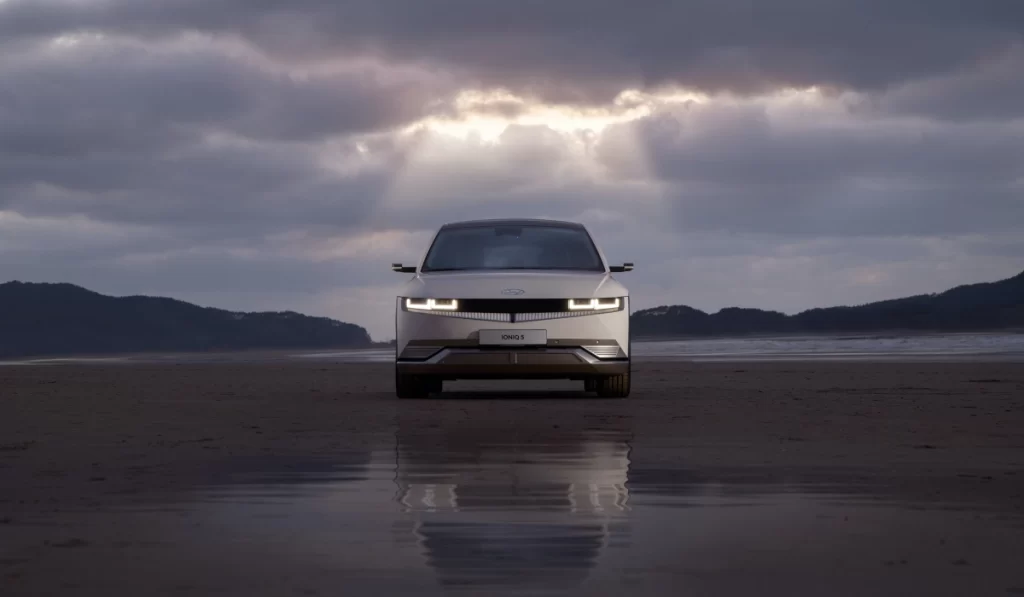If you are like me, you are fascinated by electric vehicles. Having grown up being transported in gas-powered cars and buses, the world of electric vehicles is a ship new, fascinating one. One big concern about EVs has been how far they can go on a single charge, compared to the range of traditional gas-powered vehicles.
And that is a valid concern. The growing popularity of electric cars in the United States and elsewhere can be attributed to several factors. One of the main reasons is the decreasing cost of battery technology. As battery technology continues to improve, the cost of electric cars is becoming more competitive with traditional gas-powered cars. In addition, many governments around the world are offering incentives and subsidies for the purchase of electric cars, making them more affordable for consumers.

The performance of electric cars has also improved significantly in recent years. Many electric cars now have a range of over 200 miles on a single charge, making them a more practical option for everyday use. In addition, advances in electric car technology have led to improvements in acceleration and handling, making them more comparable to gas-powered cars in terms of performance.
Finally, the growing popularity of electric cars can be attributed to the increasing availability of charging infrastructure. Many governments and private companies are investing in charging infrastructure to make it easier for electric car owners to charge their vehicles on the go. This has helped to alleviate concerns about range anxiety and has made electric cars a more practical option for many consumers.
Table of Contents
Factors that Affect Electric Car Range
There are several factors that affect or determine the range of electric vehicles. Here are some of the most important ones:
- Battery Capacity: The amount of energy that an electric vehicle’s battery can store is one of the most important factors that determines its range. The higher the battery capacity, the more energy the vehicle can store, and the longer the range.
- Driving Habits: The way that a driver operates an electric vehicle can have a significant impact on its range. Aggressive driving, such as rapid acceleration and hard braking, can reduce the range of an electric vehicle. Driving at a consistent speed and avoiding sudden stops and starts can help to maximize range.
- Weather Conditions: Extreme weather conditions, such as very hot or very cold temperatures, can affect the range of an electric vehicle. Cold temperatures can reduce battery performance and range, while hot temperatures can cause the battery to degrade more quickly.
- Terrain: The terrain that an electric vehicle is driven on can also affect its range. Driving uphill requires more energy than driving on flat terrain, which can reduce the range of an electric vehicle.
- Vehicle Weight: The weight of an electric vehicle can also affect its range. Heavier vehicles require more energy to move, which can reduce their range.
- Accessories: The use of accessories such as air conditioning, heating, and audio systems can also affect the range of an electric vehicle. Using these accessories can draw energy from the battery, reducing the range of the vehicle.
- Driving Speed: The speed at which an electric vehicle is driven can also affect its range. Driving at high speeds requires more energy, which can reduce the range of the vehicle.

How Far Can Electric Cars Go On A Single Charge? A Look At The Range Of Some Popular Electric Cars
- Tesla Model S Long Range: 405 miles
- Tesla Model X Long Range: 371 miles
- Tesla Model 3 Long Range: 358 miles
- Tesla Model Y Long Range: 326 miles
- Ford Mustang Mach-E: 300 miles
- Chevrolet Bolt EV: 259 miles
- Audi e-tron: 222 miles
- Nissan Leaf Plus: 226 miles
- Kia Niro EV: 239 miles
- Hyundai Kona Electric: 258 miles
For comparison, let’s look at the range of some popular popular traditional gas-powered cars.
- Honda Civic: The fuel tank capacity of the Honda Civic is about 12.4 gallons, and if it gets around 36 miles per gallon, that’s approximately 446 miles on a full tank.
- Toyota Camry: The fuel tank capacity of the Toyota Camry is about 15.8 gallons, and if it gets around 32 miles per gallon, that’s approximately 506 miles on a full tank.
- Chevrolet Malibu: The fuel tank capacity of the Chevrolet Malibu is about 15.8 gallons, and if it gets around 29 miles per gallon, that’s approximately 458 miles on a full tank.
- Ford Fusion: The fuel tank capacity of the Ford Fusion is about 16.5 gallons, and if it gets around 27 miles per gallon, that’s approximately 445 miles on a full tank.
- Nissan Altima: The fuel tank capacity of the Nissan Altima is about 16.2 gallons, and if it gets around 32 miles per gallon, that’s approximately 518 miles on a full tank.
Advances in Electric Car Technology that have Improved Range
There have been several recent advances in electric car technology that have improved range. Here are some of the most significant ones:
- Battery Technology: One of the biggest factors in electric car range is the battery technology. In recent years, there have been significant improvements in battery technology, including the development of higher-density batteries that can store more energy in a smaller space. This has led to significant improvements in electric car range.
- Regenerative Braking: Regenerative braking is a technology that allows electric cars to recover energy that is normally lost during braking. This energy is then stored in the battery, which can help to improve range.
- Aerodynamics: Aerodynamics is an important factor in electric car range. Recent advances in aerodynamics have led to more streamlined designs that reduce drag and improve range.
- Lightweight Materials: Lightweight materials, such as carbon fiber and aluminum, can help to reduce the weight of electric cars, which can improve range.
- More Efficient Motors: Advances in electric motor technology have led to more efficient motors that can convert more of the energy stored in the battery into motion, which can improve range.
- Improved Charging Infrastructure: The availability of charging infrastructure is an important factor in electric car range. Recent advances in charging infrastructure, including the development of faster charging stations, have made it easier for electric car owners to charge their vehicles on the go, which can help to improve range.

Tips for Maximizing Electric Car Range
Here are some tips for maximizing electric car range:
- Drive Efficiently: One of the best ways to maximize electric car range is to drive efficiently. This means accelerating and braking smoothly, maintaining a consistent speed, and avoiding sudden stops and starts.
- Use Regenerative Braking: Many electric cars have regenerative braking systems that can help to recharge the battery while driving. By using regenerative braking, drivers can help to maximize range and reduce the need for frequent charging.
- Avoid Extreme Weather Conditions: Extreme weather conditions, such as very hot or very cold temperatures, can have a significant impact on electric car range. To maximize range, it is best to avoid driving in these conditions whenever possible.
- Use Eco Mode: Many electric cars have an Eco mode that can help to maximize range by reducing power consumption. By using Eco mode, drivers can extend the range of their electric car without sacrificing too much performance.
- Minimize Use of Accessories: Using accessories such as air conditioning, heating, and audio systems can draw energy from the battery and reduce the range of an electric car. To maximize range, it is best to minimize the use of these accessories whenever possible.
- Plan Your Route: Planning your route in advance can help to maximize electric car range. By choosing a route with charging stations along the way, drivers can avoid running out of power and reduce the need for frequent charging.
- Keep Your Electric Car Well-Maintained: Regular maintenance of your electric car can help to maximize range. This includes keeping the tires properly inflated, ensuring that the battery is charged to the recommended level, and keeping the vehicle well-maintained overall.
Conclusion
Electric car technology has matured to the point where you can stop worrying about range. The average electric car can go at least 200 miles on a single charge. Some can go as far as 450 miles. The average car user won’t have any challenges using any kind of electric car within the city. If you do inter-city driving, you might want to splurge on one of those with longer ranges.
If money is not an issue, the Lucid Air Grand Touring has the longest electric vehicle range as at today – 516 miles – and costs a whopping $139,650. But as a whole, you do not have to spend that much, as general EV range is nothing to worry about anymore. Also, charging stations are now more common and more advanced, so that you can top up easily, should you need to.

